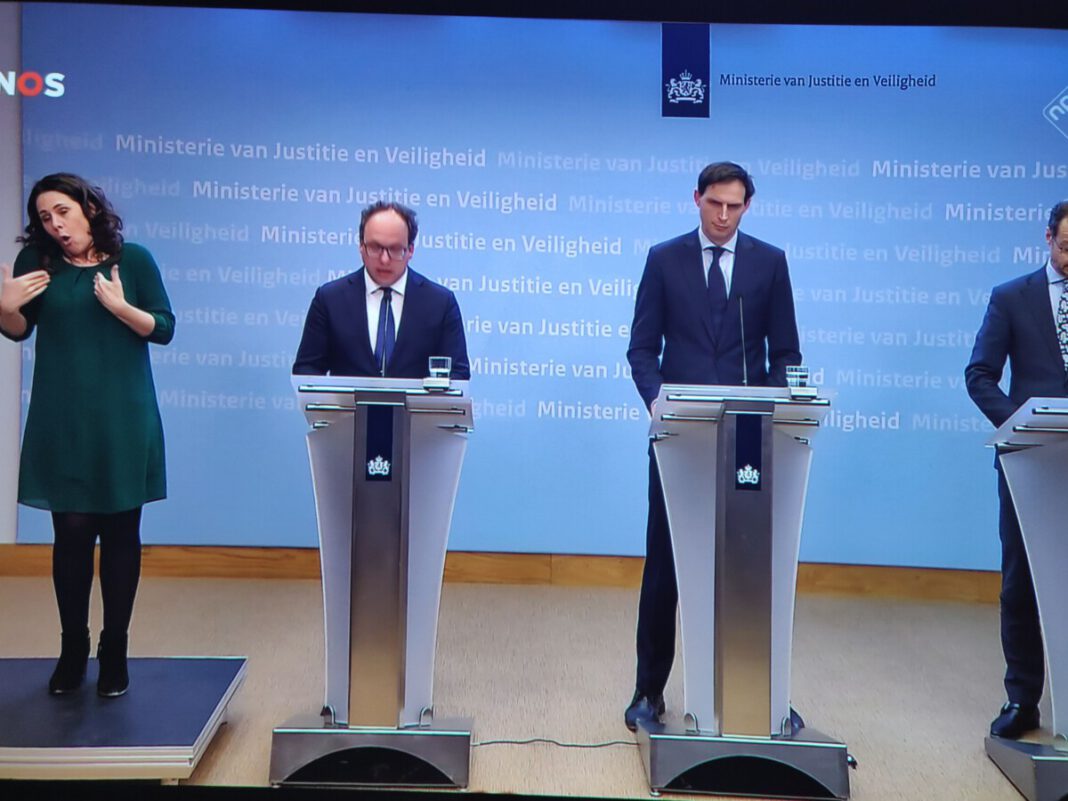A heavy and elaborate set of measures was announced to counter the economic consequences of the coronavirus pandemic during a press conference held by the ministers Hoekstra, Wiebes and Koolmees at 6.45am.
It’s going to cost billions (miljarden in Dutch) but ‘is intended for all of us’ says Wiebes (yes, also for ZZP’ers). It can roughly be divided into support measures and liquidity measures.
Dutch government also goes all-in on economic support:
– Temporary wage bill support for companies
– Support for self-employed, grants up to “social minimum”
– Delayed tax payments for companies
– Compensating sectors hit by social distancing measureshttps://t.co/iC2fvnyxnr— Pepijn Bergsen (@pbergsen) March 17, 2020
Let’s get going:
An emergency counter
Businesses who are directly impacted can report to this ‘noodloket’ where they can possibly get a sum of 4000 euro. Conditions for this will be relaxed. This applies to all sectors, such as the catering industry, but also the travel sector and the cultural sector.
New measures for freelancers (aka ZZP’ers)
Many freelancers are hit hard by the economy. And for these self-employed persons without personnel (ZZP’ers) who have run into problems, the government supplements the income to the social minimum.
The ZZP scheme will apply for three months. The money does not have to be repaid and the asset and partner test that normally applies will not this time around. This means that the self-employed do not have to dip into their savings (well, not completely) and can also receive benefits even if their partner still has income.
Extensions of tax deadlines
Companies do not have to pay taxes in the next three months. Affected entrepreneurs can apply to postpone payment of taxes without immediately sending evidence, and the collection will then stop immediately.
Workhoursreduction: the government will now cover 90% instead of 75%
The possibilities for employers to apply for less working hours for their staff are being expanded considerably and benefits are increasing.
Until now, the government has taken over a maximum of 75 percent of the salary, under the new scheme this will increase to a maximum of 90 percent. What this means is that employers have to pay much less than pre-coronavirus times. This will prevent companies from going bankrupt. The scheme also applies to employees with a zero-hour contract and on-call workers.
This does not change much for most employees. In most cases, the employer supplements the benefit to the full salary and will continue to do so.
Not every company can apply for part-time unemployment benefits. The condition is that turnover has decreased by at least 20 percent.
Alright, that was it once again for another coronavirus day. We’ll explain more about this in greater detail tomorrow, including what the consequences might be for you internationals folks. Stay safe and wash hands!
We mogen soms ook best beseffen wat voor een topland dit is. Wat je ook vond van de afgelopen weken, de pro-actieve houding van de regering nu is bewonderenswaardig. Hoop dat iedereen financieel veilig zit de komende tijd. 🧡
— Gosse Bouma 📽 (@Gosserd) March 17, 2020
Feat image from left to right: Sign interpreter and ministers Koolmees, Hoekstra and Wiebes. (source: still of NOS press conference, by DutchReview)




I’m curious how the ZZP’er relief measures affect non-EU citizens in the Netherlands. The criteria for the ZPP’er scheme states that the recipient must “A Dutch National or equivalent”.